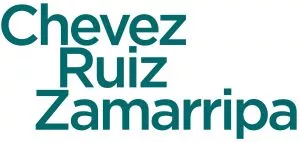- within Corporate/Commercial Law topic(s)
- in South America
- in South America
- in South America
1. What are the key rules/laws relevant to M&A and who are the key regulatory authorities?
The main regulatory authority for M&A transactions is the Mexican Federal Antitrust Commission (Comisión Federal de Competencia Económica "COFECE"), which enforces measures for controlling and preventing anticompetitive effects of mergers, acquisitions and similar transactions. Transactions whereby companies or the so called �� economic agents" merge, acquire portions of other companies, associate or carry out operations that unites them are considered as "concentrations". Those concentrations must be reported to COFECE whenever certain economic thresholds are surpassed, so that COFECE can assess the impact of the transaction on the relevant market and any potential risks and harms to competition. As a result, COFECE may authorize, deny, or condition the execution of transactions.
The acquisition of public companies is regulated under different legal provisions and authorities, such as the Securities Market Law (Ley del Mercado de Valores), the rules and regulations issued by the National Banking and Securities Commission (Comisión Nacional Bancaria y de Valores), the Ministry of Treasury and Public Credit (Secretaría de Hacienda y Crédito Público), the Mexican stock exchanges, and the GLBO.
It is important to consider that foreign investment is restricted for certain activities, as provided under the Foreign Investment Law, by forbidding or limiting the percentage of participation that a foreign investor may hold in a Mexican company. Therefore, when allowed by such law and in those restricted sectors, foreign investors must obtain an authorization issued by the Mexican National Foreign Investments Commission (Comisión Nacional de Inversiones Extranjeras) to participate (i.e., by means of an acquisition) in a Mexican company. Additionally, authorization by such National Foreign Investments Commission must be obtained for those transactions in which foreign investment will participate in a percentage over 49% of a Mexican company, only in those cases where the value of the total assets of the target company surpasses the amount that the aforementioned Commission sets on a yearly basis. Currently, such amount is of $24,979,862,979.30 Mexican Pesos (as of the last publication by the National Foreign Investments Commission in the Federal Official Gazette, dated October 27, 2023).
Finally, other authorities may be involved in M&A transactions, depending on the type and structure thereof. For example, the Mexican Social Security Institute (Instituto Mexicano del Seguro Social), regulatory authority for social security and employee benefits; also, certain corporate acts to be carried out through an M&A transaction must be recorded at the Public Registry of Commerce (Registro Público de Comercio); the transfer of title of real estate assets must be registered before the Public Registry of Property (Registro Público de la Propiedad), and certain guarantees (such as non-possessory pledges, leasing agreements, ownership retention provisions in contracts, among others) must be registered before the Registry of Movable Guarantees (Registro Único de Garantías Mobiliarias).
Finally, notices regarding changes in the shareholding structure of a company must be notified to the Ministry of Economy (Secretaría de Economía) and the Federal Taxpayers' Registry (Registro Federal de Contribuyentes) and, when applicable, to the Foreign Investment National Registry (Registro Nacional de Inversión Extranjera). Failure to comply with the aforementioned notices could result in the imposition of fines and other sanctions.
What is the current state of the market?
Per public sources, the M&A market experienced a slight growth in 2023 in comparison to 2022. The market is expected to remain active and steady, mainly because Mexico continues to be deemed as a stable economy. However, 2024 is not free from uncertainty and challenges. Market players are expected to be cautious amid a year of federal and state elections, elections in other countries that are relevant for Mexico's economy (such as the U.S.) as well as constitutional reforms proposed by the current administration, which could impact certain sectors.
3. Which market sectors have been particularly active recently?
According to public sources, the manufacturing, real estate, logistics, construction, industrial, mining, technology, consumer, and financial sectors were the most active in 2023 and the real estate market is expected to continue to grow during 2024 due to nearshoring opportunities, particularly in the northern states of Mexico.
4. What do you believe will be the three most significant factors influencing M&A activity over the next 2 years?
It is expected that the most significant factors influencing M&A activity in Mexico will be (i) inflation and the raise of interest rates, which have been impacting valuation of companies and have the effect of increasing preference of capital over debt; (ii) the reaction of the markets to expected global recessions and the surging of commodity prices; and (iii) the nearshoring advantages that Mexico offers, especially for the manufacture and commercialization sectors in North America, in comparison to other jurisdictions and taking in consideration the continued effects of global developments and trade conflicts. Upcoming federal elections in 2024 are also to be observed as a factor that will be weighing in for investment and business decisions. It is likely that the three most significant factors influencing M&A activity in Mexico over the next 2 years are: (i) the outcome of the federal, congress and state elections to take place in June, 2024; (ii) the outcome of over 20 bills to amend the Mexican Constitution submitted by the Executive to the Congress; and (iii) the development of geo-political factors, including the U.S. elections, which might impact the activity in all sectors, but specifically in the nearshoring of manufacturing and services to Mexico.
5. What are the key means of effecting the acquisition of a publicly traded company?
In addition to the legislation mentioned in question 1 above, the acquisition of a publicly traded company must be carried out through a tender offer in accordance with the Securities Market Law (Ley de Mercado de Valores) (LMV), the General Regulations Applicable to Publicly Traded Companies (Disposiciones de carácter general aplicables a las emisoras de valores y a otros participantes del mercado de valores) and secondary regulations issued by the National Securities and Banking Commission (Comisión Nacional Bancaria y de Valores) (CNBV) and the Mexican stock exchanges. Such tender offers may be either voluntary or mandatory.
Both voluntary and mandatory tender offers must be approved by the National Securities and Banking Commission (Comisión Nacional Bancaria y de Valores) (CNBV) and shall (i) remain open for at least 20 (twenty) business days, (ii) the allocation of the offer must be made on a proportional basis, and (iii) during the term of the tender offer, it may only be modified to the extent that it benefits the sellers or if the modification was previously agreed to in the offering memorandum, in such case, the offer may be extended by at least five additional business days if the bid is materially modified.
On December 28, 2023, a decree was published in the Federal Official Gazette by which several amendments were made to the Securities Market Law, among others, introducing a new procedure for the registration of securities in the National Securities Registry (Registro Nacional de Valores or RNV) intended to allow new issuers to participate in the Mexican stock market through the offering of equity and debt securities. This new form of publicly traded companies is called "Simplified Issuers" (Emisoras Simplificadas).
Per the amendments introduced by the aforementioned decree, the tender offers for the acquisition of securities issued by Simplified Issuers will be subject to the provisions and mechanisms set forth in the corresponding bylaws of the Simplified Issuer and therefore, shall not be subject to the tender offer rules and procedures established in the Securities Market Law. Further requirements regarding this matter may be introduced through secondary regulations that shall be issued by the CNBV.
6. What information relating to a target company will be publicly available and to what extent is a target company obliged to disclose diligence related information to a potential acquirer?
As a general rule in Mexico, publicly available information is limited to that provided by public registries, like the Public Registry of Commerce (Registro Público de Comercio) and the Public Registry of Property (Registro Público de la Propiedad) Information related to litigation may be obtained through the lists containing provisions agreed upon by the judicial system, but in a due diligence context, those are not a clear indication to confirm whether a target company and/or its shareholders/partners have any pending litigation in Mexico. There is no law or legal provision that forces a certain level of disclosure from a target private company, so it is necessary for the due diligence process to look for any evidence that could point to the existence of any potential significant risk for buyers.
Regarding publicly traded companies, applicable regulation issued by the National Securities and Banking Commission (Comisión Nacional Bancaria y de Valores) (CNBV) and the Mexican stock exchanges requires that such companies must disclose certain corporate and financial information to the public on an annual, bi-annual and quarterly basis, in addition to any relevant information that must be disclosed to the public in accordance with such regulation.
The board of directors of a public company subject to a tender offer shall, within ten business days following the launch of the tender offer, prepare and disclose to the public a fairness opinion with respect to the offered price and any conflicts of interest that any of the members of the board of directors have in connection with the tender offer. Further, the members of the board of directors and the Chief Executive Officer of the company also have to disclose to the public, along with the fairness opinion, the decision each shall make with respect to any securities they own.
To view the full article please click here.
Originally published in Legal500
The content of this article is intended to provide a general guide to the subject matter. Specialist advice should be sought about your specific circumstances.




